We’re keeping the news as light as possible this week and running a catch-up feature on the important research announcements that didn’t reach you over the summer period.
Autumn statement
You can read the detail behind the headlines on the autumn statement here.
Education Select Committee – new chair
Robin Walker has been elected as the Chair of the Education Committee, beating Caroline Ansell, David Simmonds, and former schools minister Jonathan Gullis. Walker did a stint as Minister of State for School Standards (2021-22) as well as other non-education junior ministerial roles. He’s also participated in APPGs on Apprenticeships, Financial Education for Young People, Youth Employment & Outdoor education, and was recently elected as the vice-Chair for the APPG for Students.
The Education select committee is responsible for scrutinising the work of Government and holding them to account for education matters. In this Walker has stated he is keen to learn from different parts of the UK as well as internationally. He states he will continue Halfon’s (the previous Chair) work on skills, SEN, attendance and levelling up. However, he intends for the Committee to also focus on childcare, safeguarding and the cost pressures facing schools and families. There’s been no mention of HE. Walker has described himself as a constructive critic of the Government and stated he is passionate about creating opportunity for businesses and for people to escape benefit dependency
Walker is from a political family, his father was also an MP. He went to a private school and read history at Oxford, and he interned in a US Congressman’s office. Prior to his political career he ran his own public relations business, staying on as an advisor after his appointment to parliament. Ultimately, he had to resign his advisory position following a complaint that he was contravening lobbying rules. Prior to parliamentary appointment he was also the press agent to previous local Dorset MP Oliver Letwin. He was the first in his family to attend university and his siblings both work in education – one in SEN and the other in a literacy role. He states he is acutely aware of the challenges and costs of childcare. He also supports a rich curriculum and believes schools should teach a wide range of subjects including STEM, creativity, outdoor education, RSHE, languages, and the arts
In his School’s Minister stint he states he: Presided over the return to school after the pandemic; co-wrote the White Paper including the levelling up premium & Education Investment Areas; prioritised deprivation in the funding formula & delivered the largest ever cash increase in schools funding; Co-chaired the Attendance Action Alliance bringing together the Childrens’ Commissioner, schools and councils to tackle severe absence; reformed the National Tutoring Programme to be schools-led; supported early delivery of manifesto pledge on £30k starting salaries for teachers; made preparations for the first successful exam series in 3 years, and previously he launched the Natural History GCSE.
Walker has a clear focus on schools and children. It remains to be seen how quickly he’ll find his feet with the tertiary and skills agenda. The Chair of a select committee is a driving force in what a committee selects for their inquiries. This may mean HE matters feature less or simply continue in the vein Halfon started. Or he may delve into new waters to grasp the agenda. Focussing on deprivation and access to HE would be an obvious starting point.
Research – round up
A round up of the key news and announcements.
Science superpower lacks cape
The Lords Science and Technology Committee published “Science and technology superpower”: more than a slogan?, their report following the inquiry into Delivering a UK science and technology strategy. The report states that the Government’s unfocused strategy means that science policy has been let down by short-termism and a proliferation of disparate strategies without an overarching vision. They go on to state that there are a large number of government bodies with unclear remits and interactions, which means that it is often unclear who owns a specific policy. At the time of writing, there was no science minister, which further blurs lines of accountability. [There is now, although the division of responsibilities between George and Nus has yet to be clarified.]
The report points to the lack of an implementation plan as a key weakness and a barrier to becoming a high-tech, high-growth economy. Of course, with a new PM and even more ministerial changes to come the impetus behind the UK as a science superpower may wane. The Lords call on the incoming Cabinet to maintain the commitment to R&D funding and the focus on science and technology– it will be fundamental to economic growth and improving public services.
The Lords highlight areas of critique:
- Internationally, the Government’s own-collaborate-access framework was meant to clarify policy on strategic areas of technology, but the Committee thought it was poorly understood and inconsistently applied. The failure to associate with Horizon Europe and cuts to Official Development Assistance have damaged the UK’s reputation as a collaborative partner, and risk damaging its science base.
- The Government hopes to leverage private sector funding to reach the 2.4% target. It has identified areas for reform, such as public procurement, regulations, and pension rules, but these are perennial suggestions and the Committee was unconvinced that this attempt would more successful. Industry has been insufficiently engaged with the Government’s strategy.
The full recommendations to Government can be read on pages 56-61. The Government was due to respond to the Committee’s report by now. However, given the political disruption it isn’t surprising the response is late.
Baroness Brown of Cambridge Chair of the Committee, reiterates the key points in her statement:
- The Government has high ambitions for science and technology, which the Committee welcomes…But science policy has been far from perfect. R&D is a long-term endeavour which requires sustained focus and an implementation plan. But we found a plethora of strategies in different areas with little follow-through and less linking them together. There are numerous bodies and organisations with unclear or apparently overlapping responsibilities, and more are being added in the form of the National Science and Technology Council and the Office for Science and Technology Strategy. It is often unclear who is accountable for individual policies, and critically, for delivery.
- The Government has suggested areas of reform to increase private sector investment in R&D such as public procurement for innovation, regulatory reform, and R&D tax credits. But these areas are perennial suggestions. New ideas – and specific details – developed with business are needed if this time the outcomes are to be different.
- “On the international stage, the failure to associate to Horizon Europe, and recent cuts to Official Development] Assistance, have damaged the UK’s reputation. The UK cannot be a science superpower in isolation; relationships must be repaired.
- UK science and technology remains strong and respected around the world, but they will not deliver their full potential for the UK with an inconsistent and unclear science policy from Government. A new administration must retain the ambition for science and technology and develop a clear plan for delivery.
More superheroes – selecting a cape
Centre-right think tank, Onward, published under the same theme – Rocket science: how can the UK become a science superpower? making recommendations for the UK to become a true “science superpower”. Their researchers identified four characteristics of science superpowers which they say should guide the UK’s own ambitions:
- First, science superpowers prioritise academic foundations. That is to say, competitive R&D investment, well-regarded research institutions and strong intellectual property assets.
- Second, science superpowers have deep knowledge networks, in that they host the best research, attract the most promising scientists, and lead global regulation of technologies.
- The third trait of science superpowers is absorptive capacity: the ability to absorb ideas within the real economy for economic benefit.
- Fourth, science superpowers typically exert their scientific influence overseas through technology exports– the sale of high-tech products and services, including intangibles, overseas.
They argue that, to become a science superpower, the UK science ecosystem must be reformed to meet five key tests:
- Strategic direction. The Government should be more assertive in deploying R&D funding in areas of UK comparative advantage or to address a strategic weakness.
- Applying ourselves. The UK’s higher education system should do much more to encourage application of research, and businesses should respond by increasing their own R&D intensity, increasing demand for scientists within the domestic economy.
- Policy certainty. Private investment in R&D should be encouraged by giving businesses simpler, long-term incentives providing a stable policy environment that allows companies to plan investments with certainty.
- Relentless adoption.The UK should do more to support businesses and individuals to adopt cutting edge technologies so we can fully realise the benefits of technology.
- Exporting influence. UK firms could do much more to export their products overseas, particularly intangibles, and to set standards for future technologies to get ahead of these emerging markets.
Onward’s Head of Science and Technology, Matt Burnett said: The COVID-19 pandemic showed us just how important science is for our health security. We need to seize this moment and invest in science and technology to solve the other problems we face such as climate change and the energy crisis. The new Prime Minister should put science and technology at the top of their agenda, lest we be unprepared for the next global crisis.
Lord Bethell, Minister for Technology, Innovation and Life Sciences (2020-21): Working at the frontline of the pandemic innovation, I realised at first hand the huge power of the science at our great universities, and the lack of depth in our industrial capacity to turn that science into deployable solutions. This report is an excellent start to a conversation about how we can use our traditional strengths at the lab-top to turn Britain emphatically into one of the world’s great science superpowers.
Rt Hon Lord Hague, Secretary of State for Foreign and Commonwealth Affairs (2010-2014): An excellent contribution to what should be our most vital national debate. Ensuring science is at the core of our society and economy is indispensable to the UK’s future prosperity. Failure in this field would be fatal to future growth.
George Freeman, Parliamentary Under-Secretary of State for Life Sciences (2014-16); Parliamentary Under-Secretary of State for Science, Research and Innovation (2021-22), and now Science Minister again (2022): The path to faster growth and better wages starts and ends with science and innovation. The UK is already a Science Superpower in discovering new ideas and building thriving knowledge networks, but we could do much more to apply them for the benefit of the UK’s strategic and economic priorities. This excellent report sets out a bold plan to lift our scientific ambitions and secure our future – it is essential reading for the new Conservative Prime Minister.
Review of UKRI
The independent review of UKRI, led by David Grant, has been published. The report calls for more effort on realising the benefits of a single body rather than a cluster of research councils. Ministers and UKRI leadership have expressed their support for the review’s 18 recommendations, which include investment in harmonising IT systems, clarifying roles and responsibilities within UKRI and with BEIS, and further focus on demonstrating outcomes from their funding.
Recommendations
- In delivering its efficiency plan, UKRI should aim for simplicity, integration, harmonisation and agility of its systems. These should be objectives of any monitoring framework or performance indicators used to monitor progress and delivery.
- In delivering its efficiency plans and developing its operating model, UKRI should clarify the roles and responsibilities between the Corporate Hub and the councils. This process should ask if the right functions are centralised or devolved and should explore appropriate reductions in size, for example in the Corporate Hub.
- In delivering its efficiency plans, UKRI will need to invest in capability, IT systems and infrastructure in the short term that will improve efficiency in the long term, ensuring that the ambition set out in the UKRI DDaT Strategy 2020-23 is implemented. This will require UKRI to ensure that it retains the right technical and project delivery capability across the organisation.
The interim report was published in January and there’s a thank you letter to David from the Secretary of State. The Government has promised to respond to the specific recommendations within the report later in the year.
Wonkhe have a blog but a reader comment doesn’t agree and believes the blog to be too forgiving of UKRI.
Business Secretary Kwasi Kwarteng said: I welcome Sir David’s recommendations. To support our ambition to establish the UK as a true Science Superpower, we have given UKRI its largest funding settlement ever, with over £25 billion across the next 3 years. Our ambitions for a world-class research and innovation system require a world-class funder, which is why we will work closely with UKRI to deliver these recommendations and ensure they are equipped and ready to support those goals.
Review of Research Bureaucracy
And another independent review, this time led by Professor Adam Tickell (VC, Birmingham) considering Research Bureaucracy. Who was set this agenda:
Unnecessary bureaucracy diverts and hampers research, and the work of individual researchers and research teams. Ultimately, it diminishes the returns from research funding.
You can read a summary of the consultation responses here.
Seven Principles
The Review developed seven principles to cut unnecessary bureaucracy which they state should inform the government response and future action across the sector:
- Harmonisation– Reducing the volume of administration through the use of common processes between different funders to make essential work easier.
- Simplification– Reducing the complexity of individual processes to address unnecessary bureaucracy.
- Proportionality– Ensuring that the obligations placed on researchers and institutions are commensurate with the size of the risk or reward.
- Flexibility– Supporting and embracing excellence wherever it is found and not excluding research that does not fit within narrowly defined parameters.
- Transparency– Communicating the rationale for systems and processes which have a bureaucratic burden.
- Fairness– Developing approaches to systems and processes that support fairness, rather than erode it.
- Sustainability– Cutting bureaucracy in ways that avoid destabilising the system to deliver a more efficient system over the long term.
The Review focussed on aspects of the research system where there was consistent feedback on the need and scope for change. As a result the review identified six themes where there is believed to be scope for significant positive change:
- Assurance
Information provided to funders and regulators to demonstrate that research is carried out in accordance with funding terms and conditions. The principle of ‘ask once’ should be paramount throughout the assurance system.
Findings
The Review identified the following key issues with regard to assurance bureaucracy:
- Overall, there are too many requirements relating to assurance bureaucracy and they are often complex and duplicative;
- Uncertainty in the sector about how to manage assurance issues contributes to risk aversion and over-compliance in institutions’ internal assurance processes;
- A lack of trust, coordination, partnership working and knowledge exchange on assurance throughout the research sector;
- An incremental growth of bureaucracy – changing priorities have meant that, over time, new assurance requirements have been introduced. However, few attempts have been made to remove or reduce redundant assurance requirements.
Recommendations
To address these issues they recommend that:
- Government departments that fund research should work together to ensure there is greater alignment of assurance approaches, removing duplication. UKRI should take forward action to achieve greater alignment and coordination across UKRI Councils;
- Government should facilitate closer working with other funders, including charity funders, to increase coordination and reduce assurance burdens on the sector;
- Funders and research organisations should develop collective approaches and resources to support institutions in managing their assurance processes; and
- Funding bodies should explore the function and benefits of self-certification and/or earned autonomy for institutions with a robust track record of assurance
- Applying for Funding
Funding applications were one of the most cited causes of unnecessary bureaucracy by organisations and individuals in the Review’s call for evidence.
Findings
- The Review heard concerns from researchers and research managers about the length and complexity of application processes;
- The overall success rates for research grant applications are low – often around 20%. Given this, single stage processes which require applicants to provide all the information at the outset mean that for a majority of applicants this information is unused and ultimately wasteful;
- Two stage application processes may deliver improvements across the system but may present funders with resourcing challenges or take more time and UKRI and others are piloting these approaches now. The Review received a range of views on how best to manage the prospect that more streamlined application processes could lead to higher numbers of applications;
- There is already evidence of funders tackling these issues in a variety of ways, but there is scope to go much further.
Recommendations
To address these issues they recommend that:
- Funders should experiment with application processes to reduce burdens for applicants, (including two-stage application processes) where the information required increases in line with the likelihood of being funded;
- Funders should work together to increase standardisation across their application processes in terms of the use of language and the questions they ask where appropriate. UKRI should facilitate this across Research Councils in the first instance;
- Funders should review what adaptations will be needed to assessment processes to take account of changes to application models. This should include the information necessary for national security assessments alongside innovative approaches from the use of peer reviewer triage to limit the number of applications requiring full peer review to experimenting with new models such as randomly allocated funding;
- Funders should ensure that application processes support their commitments to equality, diversity and inclusion;
- Funders should remove the requirement for letters of support from applications in most circumstances.
- Grant Implementation and In-Grant Management
Research is inherently unpredictable so the review suggests areas where more flexibilities may be beneficial, once a research project is underway:
Findings
- The period between issue of award letter and start of a research project can be too short, leaving little time for procurement, recruitment and financial administration;
- Conversely, the time taken to get agreement from research funding organisations to changes to a project or to the profile of funding can be too long;
- It is often unclear to funding recipients what the purpose is of information requested in project monitoring;
- Contracting and collaboration agreements are a major source of delays because many research organisations prefer to use their own version rather than standard formats such as Brunswick or Lambert Agreements.
Recommendations
To address these issues they recommend that:
- Funders and recipients should ensure there is adequate time for the completion of all necessary tasks (including providing assurance information) between the issue of the award letter and the start of the project;
- Universities and research organisations should wherever possible use standard templates for contracts and collaboration agreements, recognising that this would not just be faster, but would also facilitate third-party collaborations;
- Wherever possible, funders should build in flexibilities including no cost extensions within manageable parameters to reduce delays in addressing project changes and the number of queries funders receive;
- Ethical and other regulatory approvals should be the responsibility of the lead partner on a multi-institution research project and counterparties (including in the NHS) should not require additional duplicative approvals.
- Digital Platforms
Every aspect of research bureaucracy depends on digital platforms and the extent of the sector’s reliance on them can heighten the impact of any flaws in their design or function.
Findings
- There is a challenge in creating digital platforms that are capable of supporting institutional diversity and keeping pace with change in UK research without being overly complex
- There is scope for greater harmonisation of digital platforms. However, this will also be limited to a degree by the differing nature and objectives of individual funders;
- Greater inter-operability and data sharing between systems could significantly reduce bureaucracy;
- There is currently a window of opportunity to deliver vastly improved services across key funders as UKRI, NIHR and Wellcome amongst others move away from older platforms;
- Funders are continuing to drive forward programmes to reduce bureaucracy in their systems and processes. Through the Simpler and Better Funding programme, UKRI is piloting a new digital platform – UKRI Funding Service – which from 2024 will deliver end to end functionality for all Research Council grant applications.
Recommendations
To address these issues the review recommends that:
- For the higher education sector, Jisc should lead on the creation of sector-wide groups responsible for overseeing the development and further integration of the research information ecosystem, including research management data;
- Funders, universities and regulators should ensure interoperability and improved data flows are considered as integral to the design and implementation of any new digital systems;
- For existing systems, approaches to improving the flow of data between different platforms should be explored using, for example, application programming interfaces, point to point integration and machine learning.
- Institutional Bureaucracy
There are strong links between bureaucracy related to requirements of funders, regulators and government and each research institution’s own systems, processes and approaches. Research organisations, particularly universities, need to address their own unnecessary bureaucracy to support the Review’s aim of freeing up researchers to focus on research.
Findings
- Institutional bureaucracy was the most cited source of unnecessary bureaucracy by individuals in the Review’s call for evidence;
- There is a culture of risk aversion within universities. Whilst much of this is understandable, it has a negative impact on the processes for decision making;
- Risk aversion has, in some cases, led to unnecessary approval hierarchies which can cause major delays and operational difficulties;
- Use of generalist professional services department to provide key elements of research support – for example, legal services – can lead to longer delays because of a lack of familiarity or confidence with handling research grant agreements or contracts.
Recommendations
To address these issues they recommend that:
- Wherever possible, research organisations should examine the feasibility of delegating research-related approvals to research managers and officers who are closer to research;
- Universities UK should bring universities together to find new platforms and methods for working together on research management issues such as increasing risk appetite, streamlining burdens including through greater standardisation;
- If they do not already have them, research organisations should establish “Trusted Funder” policies to enable projects to proceed at risk, within certain parameters.
- Communications
There are a number of communications issues in relation to unnecessary bureaucracy. Funders can address antipathy towards necessary bureaucracy by communicating more clearly why it is required and what they do with the information. A lack of clarity can lead to “gold plating” by institutions who are trying to manage regulatory and other requirements.
Findings
- Frustration with necessary bureaucratic requirements may be related to how widely the rationale and role of particular R&D funding systems and processes are communicated and understood;
- There is also scope to increase awareness of existing tools and methods that can reduce bureaucratic burdens, e.g. persistent digital identifiers;
- Uncertainty about the introduction and approach to implementing new requirements could be addressed through proactive communication and engagement by funders and regulators;
- In addition, the review heard that government and funders could go further to engage with the sector on the specifics around implementation of new requirements to identify the most efficient approach;
- There were a series of specific concerns with regard to the approach to communications with the sector including use of jargon and inconsistent language, working to ensure communications are received by the right audiences (for example, not just Vice Chancellors or Pro Vice-Chancellors of Research) and timeliness in relation to submission deadlines
Recommendations
To address these issues they recommend that:
- Government, funders and regulators should undertake wide ranging consultation with research organisations prior to the introduction of new regulatory or other requirements;
- Government and funders should proactively communicate on new and emerging regulatory issues. The Research Collaboration and Advice Team (RCAT)i model providing support on national security matters is good practice in this regard;
- Funders should ensure important messages about research are sent to research office contacts as well as Vice Chancellor/Pro-Vice Chancellor Research.
What’s next?
The Government should formally respond to the review and likely support certain elements while ignoring others.
The review also said that there should be consideration of the governance and other arrangements needed to ensure the longer-term change required to fully deliver on this vision is in place. Alongside ongoing monitoring and evaluation to keep bureaucracy at bay in the future.
Business Secretary Kwasi Kwarteng said: The work of our exceptional researchers will not reach its full potential while the research system is bound up by excessive red tape. The findings of Professor Tickell’s thorough review shine a light on the huge opportunity for improvements in this field. I am confident this report will act as the stimulus needed for institutions, funding bodies, regulators – and for government – to come together and make the progress required.
Author of the Bureaucracy Review, Professor Adam Tickell, said:
UK research is world-leading, however… there are huge opportunities to improve how our research system works. The Review has unearthed excessive bureaucracy across the system.
It will now take a collective effort involving individuals, institutions, funders, regulators and government to realise the potential benefits of change while ensuring the vital checks and balances in the system are not lost. I hope this report signposts the way forward and provides the impetus needed.
Chief Executive of UK Research & Innovation, Ottoline Leyser, said:
We warmly welcome this thoughtful and excellent review…The review’s recommendations, and the principles that underpin them, strongly align with ongoing work at UKRI, such as our Simple and Better Funding Programme. By working in partnership across the UK research and innovation system we can catalyse transformational change, maximising the value from record-breaking levels of public investment in R&D.
The recommended changes will allow essential research – from healthcare development to studies in environmental science – to be delivered unhindered by excessive red tape, supporting the UK’s ambition to maintain its competitiveness, and secure its position as a science superpower.
The Russell Group respond to both independent reviews, Stephanie Smith, Head of Policy (Research and International) at the Russell Group, said:
Freeing up unnecessary bureaucracy will require a joint effort from all parts of the research system, and the Tickell review makes a number of welcome recommendations to improve coordination and standardisation across the sector, streamline the funding application process and free up time for grant holders to focus on research.
Alongside the Grant review of UKRI, it is positive to see a focus on how we can ensure the UK research sector is as efficient and effective as possible so world class research can thrive and we are ready to tackle the major challenges we face, from productivity to climate change. It is vital that we maintain this momentum and we look forward to working with Government and the wider sector to deliver early action to implement these changes, which will benefit researchers, funders and universities.
Blog: James Coe reviews Adam Tickell’s Independent Review of Research Bureaucracy and finds much to admire – while still being filled with questions on how this relates to the future of research.
Not on the Horizon…
It is incredibly unlikely that the UK will associate to Horizon Europe.
There are no signs of any resolution to the political issues which are preventing association. There is no sign that the UK Government has the ability or desire to resolve them.
And there is no sign of any change in position from the European Union to enable association.(Source.)
While this news didn’t come as a shock to anyone in the summer and it still doesn’t now. However, it is still disappointing to have reached this point. During the summer the Government announced the details of the UK’s plan B (assuming affiliation to the EU research programmes doesn’t make it over the Horizon). All the details are here including this suite of temporary transition measures:
- the Horizon Europe Guarantee – If we are unable to associate, we will fund applications that are submitted to a Horizon Europe funding call with an EU final call deadline date before the point of non-association, are successful in the EU evaluation and meet the eligibility criteria of the guarantee. This includes those where grant signature dates fall beyond the end of 2022. This would pick up where the current guarantee has left off, so there is no gap, and no eligible successful applications would go unfunded
- funding for successful, in-flight applications – We will support UK entities with eligible in-flight applications to Horizon Europe (to calls that have closed or are open at the point of non-association, where such applications are not being evaluated by the EC), by assessing such applications domestically, to ensure the best get funded should the EC no longer carry out the evaluation
- uplifts to existing talent programmes – We will increase funding for our best existing talent schemes covering a broad range of disciplines via National Academies and UKRI. This will be followed by the creation of our bold new UK fellowship and award programme, designed to retain and attract top talent in the UK.
- uplifts to innovation support – We will increase funding for a range of our best innovation schemes targeted at small and medium sized businesses (SMEs), delivered by Innovate UK, and go on to create exciting new mechanisms, ensuring they are bigger, bolder with less bureaucracy and more flexibility
- the Talent and Research Stabilisation Fund – We will use formula funding to support a range of eligible UK institutions who have been most affected by the loss of Horizon Europe talent funding. The fund will enable eligible research organisations and universities to support talent retention and target funding vulnerabilities at a local level
- Third Country Participation – Around two-thirds of Horizon Europe calls are open to UK researchers and companies as Third Country applicants, as part of consortia with at least 3 other applicants from EU member states or associated countries, provided they bring their own funding. As this is a priority for businesses and researchers, the government will fund all eligible UK entities participating in any such consortia signing grant agreements before 31 March 2025.The government will consider our approach to funding for Third Country Participation beyond this date and make an announcement by October 2024
Wonkhe have a blog. And there’s a parliamentary question on the topic:
- (1) the change in the level of collaborative scientific funding for UK organisations if the UK does not participate in the Horizon Europe programme, and (2) reports that the UK is losing out on £100 million as a result of not participating
Student KE involvement
For anyone playing word bingo with today’s policy update we’re approaching a full house on ‘independent’ reviews. The OfS commissioned independent researchers to conduct an evaluation of the ‘Student engagement in knowledge exchange’ programme. The programme aims to support 20 projects to develop and share understanding of effective practice in student engagement in knowledge exchange, and to inform ongoing policy and investment.
OfS have published three summary reports providing interim findings from the evaluation of projects within the competition, for the reporting periods to May 2021, November 2021 and March 2022.
The final evaluation report is expected to be published next summer (2023).
Research England Funding Budgets 2022-25
The Russell Group issued a statement in response to the Research England funding budgets 2022-25: We particularly welcome the stable allocations over the spending review period which give the sector much needed certainty, and the boost to schemes proven to deliver returns, like the Higher Education Innovation Fund… The increase in quality-related (QR) funding will allow universities to plan long term and pursue high-risk high-reward discovery research – which underpinned breakthroughs in graphene, genomics, and laid the foundations to develop the Oxford-AstraZeneca Covid vaccine… However, despite this increase, its value has declined in real terms over the past decade. [The value of QR funding declined by 22% in real terms between 2010/11 and 2020/21.]
ARIA top appointees
Ilan Gur and Matt Clifford MBE were appointed as CEO and Chair of new Advanced Research and Invention Agency (ARIA). Ilan Gur (CEO) will set the agency’s agenda, direct its initial funding of high-risk programmes and engage the domestic and international R&D sector. As Chair, Matt Clifford will support the work of the CEO as he takes post on 15 August, acting as the steward for ARIA’s effective governance.
Ilan Gur obtained a PhD in Materials Science and Engineering from the University of California, Berkeley. He is a Schmidt Futures Innovation Fellow, an advisor to the Gordon and Betty Moore Foundation in support of the Moore Inventor Fellowship, and a judge for MIT Technology Review’s TR35 award
Matt Clifford MBE is co-founder and CEO of Entrepreneur First, an international investor in technical talent that has helped to build technological companies worth over $10 billion. Clifford is also co-founder and non-executive director of Code First Girls, has served as a Council Member at Innovate UK, and is a Trustee of the Kennedy Memorial Trust. Before starting Entrepreneur First, Matt worked at McKinsey & Co and earned degrees from the University of Cambridge and Massachusetts Institute of Technology.
Kwasi Kwarteng (was Business Secretary) said: The appointment of Ilan Gur as ARIA’s first CEO is a huge victory for the future of the agency, and for the UK. He has a distinguished track record in translating exceptional talent and ideas into commercial success, and his leadership will ensure the funding of high-risk programmes that will continue to push the boundaries of science and technology. Under Dr Gur’s leadership and with the support of the brilliant Matt Clifford, ARIA will ensure the benefits of research and development will be felt in our society and economy over the course of generations. By stripping back unnecessary red tape and putting power in the hands of our innovators, the agency has the freedom to drive forward the technologies of tomorrow.
ARIA blog: With a new ARIA Chair and Chief Executive in place James Coe argues it’s time for the sector to take a step back and allow the new research funder to succeed or fail on its own terms in a Wonkhe blog. And another blog summing up the key known information about ARIA.
Defence
The Defence Science and Technology Laboratory (Dstl) and the Alan Turing Institute have jointly launched the Defence Centre for AI Research (DCAR), to tackle problems related to advancing artificial intelligence capability.
Research England Executive Chair
Kwasi Kwarteng (was Business Secretary) selected Professor Dame Jessica Corner as the preferred candidate for the role of Executive Chair of Research England. Professor Corner will be responsible for quality related research funding to English universities, largely informed by the results of the Research Excellence Framework exercise, as well as funding for knowledge exchange activities. She will also lead Research England’s role in ensuring the health and stability of English universities in their research and innovation activities. She will be part of the UKRI senior leadership team working closely with UKRI’s Chief Executive, UKRI Board and the other Executive Chairs to collectively oversee UKRI’s strategy, funding programmes and infrastructure.
Professor Corner has a background in nursing and as an academic specialising in cancer palliative care. Recent employment includes Pro-Vice Chancellor for Research and Knowledge Exchange at the University of Nottingham. She was awarded a DBE in 2014 for services to Health Care Research and Education and was elected as a Fellow of the Academy of Medical Sciences in 2015.
Business Secretary Kwasi Kwarteng said: I am delighted to name Professor Dame Jessica Corner as preferred candidate to steward Research England through the years to come. I look forward to working closely with her and the UKRI leadership team to ensure the continued success of the world leading research carried out by our universities, building on the UK’s reputation as a science superpower.
I would also like to thank Dr David Sweeney for his tireless work for the research sector as inaugural Executive Chair of Research England and previously at HEFCE. I wish him the very best for his retirement.
Professor Jessica Corner said: I am delighted to be chosen as the preferred candidate for the role of Executive Chair of Research England at this time of huge opportunity for the country’s truly outstanding research base…I look forward to supporting our national community of researchers as they continue to explore, discover, and innovate to transform lives across the globe.
Alan Turing Institute: Director of Innovation
Simon Reeve was appointed as Director of Innovation at the Alan Turing Institute. He is the former VP of Technology and Innovation at Lloyd’s Register Group and Director of Commercial Engagement at long-term Turing partner Lloyd’s Register Foundation. He has previously had a relationship with Turing through his work supporting the Foundation-sponsored data-centric engineering programme. As Director of Innovation Reeve will support Turing’s goal to develop solution to problems using AI and data across several areas:
- Increasing the impact of the Institute in delivering positive change to society through entrepreneurship and commercial application of data science and AI
- Providing innovation leadership to the Institute’s team and its vibrant partnership network, in cooperation with the executive leadership team, in support of its research and innovation strategy and goals
- Promoting and facilitating engagement and partnership between the Turing’s community, private and public sector businesses, government, and non-government bodies, to accelerate innovation opportunities, delivering data and artificial intelligence science solutions in support of the Turing’s mission.
Quick research news
- Government Office for Science – Sir Patrick Vallance to stand down as Government Chief Scientific Adviser at the end of his five-year post in April 2023.
- Nine new commissioners have been appointed to the Commission on Human Medicines (CHM) to serve for four years. Three commissioners, Ms Susan Bradford, Professor Jamie Colemanand Dr Jamie Fraser, whose four-year tenure ended this year, have also been reappointed. The CHM provides independent expert advice to ministers on the safety, quality and efficacy of medicines, and promotes the collection and investigation of information relating to adverse reactions for human medicines. It is an advisory non-departmental public body, sponsored by the Department of Health and Social Care.
The nine new commissioners are:
- Professor Tony Williams, professor of translational medicine at Southampton University
- Professor David Hunt, chair of neuroinflammation medicine, Wellcome Trust senior clinical fellow and honorary consultant in neurology, University of Edinburgh
- Professor David Dockrell, chair of infection medicine/director of the Centre for Inflammation Research, University of Edinburgh
- Dr Gerri Mortimore, associate professor in post-registration health care, University of Derby
- Professor Paul Dargan, consultant physician and clinical toxicologist at Guy’s and St Thomas’ NHS Foundation Trust and professor of clinical toxicology at King’s College London
- Dr Vanessa Raymont, senior clinical researcher, University of Oxford and R&D director and honorary consultant at Oxford Health NHS Foundation Trust
- Mrs Julia Cons, Independent Chair, National Individual Funding Request Panel for NHS England
- Professor David Moore, professor of Infectious Diseases & Tropical Medicine, London School of Hygiene & Tropical Medicine and Consultant Physician at The Hospital for Tropical Diseases, UCLH.
- Professor Rui Providencia, associate Professor, Institute of Health Informatics, UCL
Blogs
The QAA released an interesting review of global research and interventions on grade inflation. DK had a read on Wonk Corner.
The first Research England funding allocations since REF 2021 results were published see a welcome increase in income for most providers. James Coe and David Kernohan looked into the details.
Parliamentary Questions
Access & Participation
NEON and the BBC report on the Social Mobility Foundation’s warning that the cost of living could create a “two-tier” university system.
- The Social Mobility Foundation has said it’s “concerned” those from poorer backgrounds may have to work while affluent peers enjoy the “uni experience”. “It’s never been a level playing field,” Sarah Atkinson, the chief executive says. “But we’re looking at a two-tier system for this cohort,” she adds.
- Alongside extra work, Sarah says more students from lower socio-economic backgrounds worry about money and live at home while studying .In recent weeks, students’ unions have said they are having to step in to help students cope with the rising costs of food.
Read more from the BBC article here.
Other news & latest reports
Video games degrees: Increasing the number of students studying for a degree in video games.
Graduate underemployment: What is the scale and impact of graduate overqualification in the UK? looks at how graduate outcomes have changed over the past 30 years, and the job quality of overqualified graduates.
Local Gaps: The Centre for Progressive Policy (CPP) has published a report on the educational attainment gap and local economic outcomes, in which they look at how to transform educational opportunities to support inclusive growth.
Economic Growth: UUK published a report exploring ways in which universities can contribute to economic growth, and make several recommendations such as establishing collaborative hubs for skills development, building on the Help to Grow scheme, and the rapid expansion of University Enterprise Zones (UEZ).
Research theft: Research Professional – the European Union Agency for Cybersecurity has warned that cybersecurity researchers will increasingly be at risk of having their findings stolen by third-party actors.
Subscribe!
To subscribe to the weekly policy update simply email policy@bournemouth.ac.uk. A BU email address is required to subscribe.
External readers: Thank you to our external readers who enjoy our policy updates. Not all our content is accessible to external readers, but you can continue to read our updates which omit the restricted content on the policy pages of the BU Research Blog – here’s the link.
Did you know? You can catch up on previous versions of the policy update on BU’s intranet pages here. Some links require access to a BU account- BU staff not able to click through to an external link should contact eresourceshelp@bournemouth.ac.uk for further assistance.
JANE FORSTER | SARAH CARTER
VC’s Policy Advisor Policy & Public Affairs Officer
Follow: @PolicyBU on Twitter | policy@bournemouth.ac.uk

 What are Funding Development Briefings?
What are Funding Development Briefings?

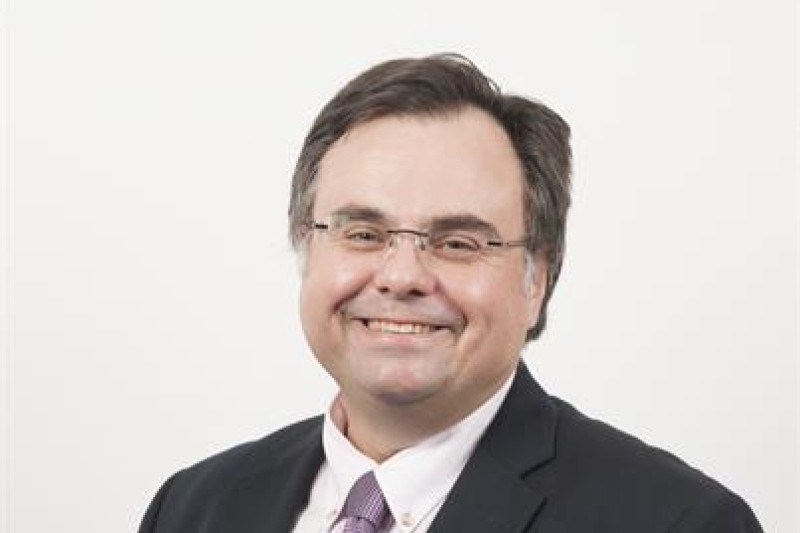
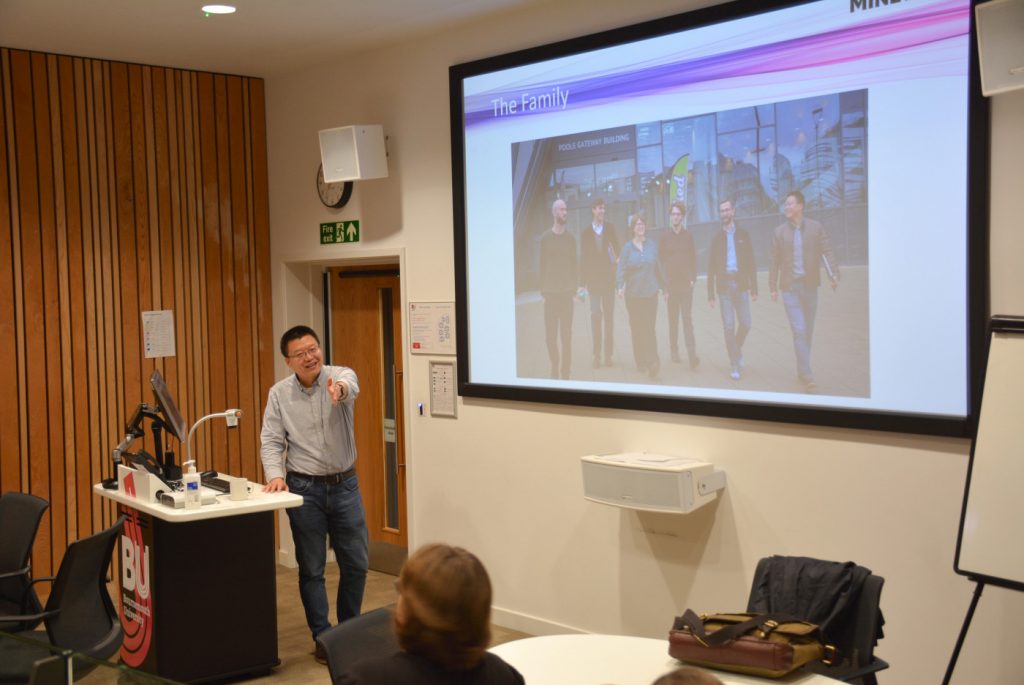
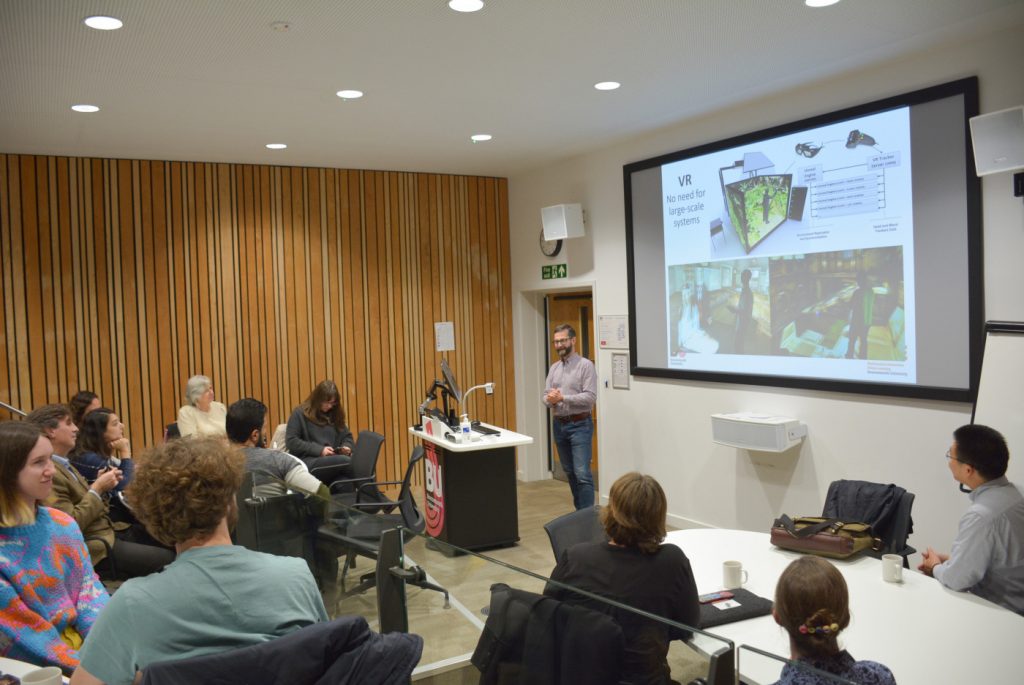
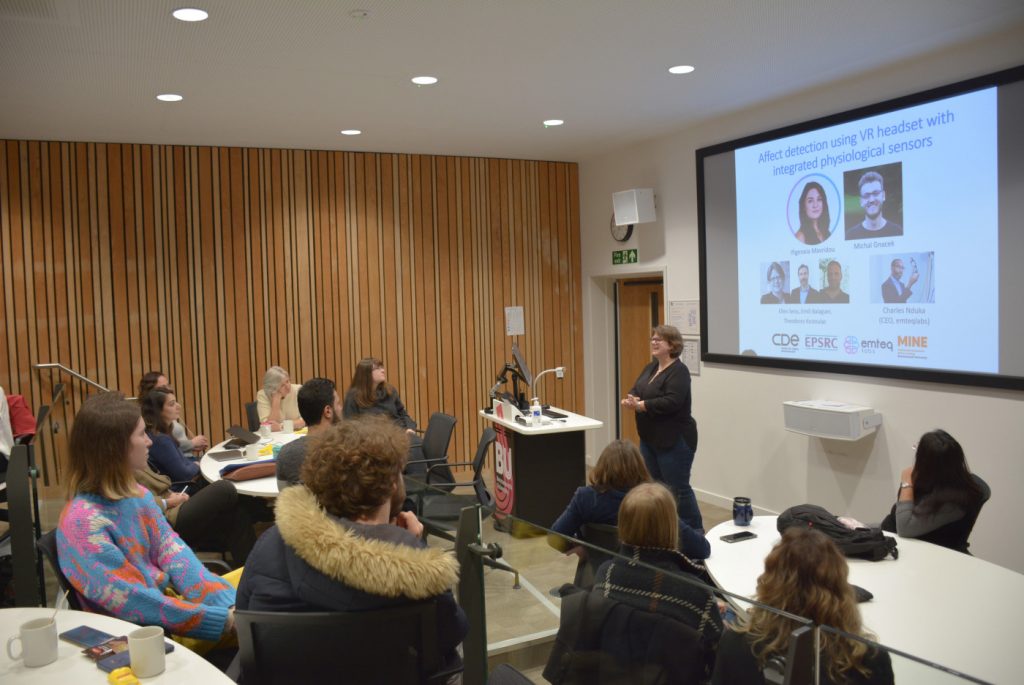
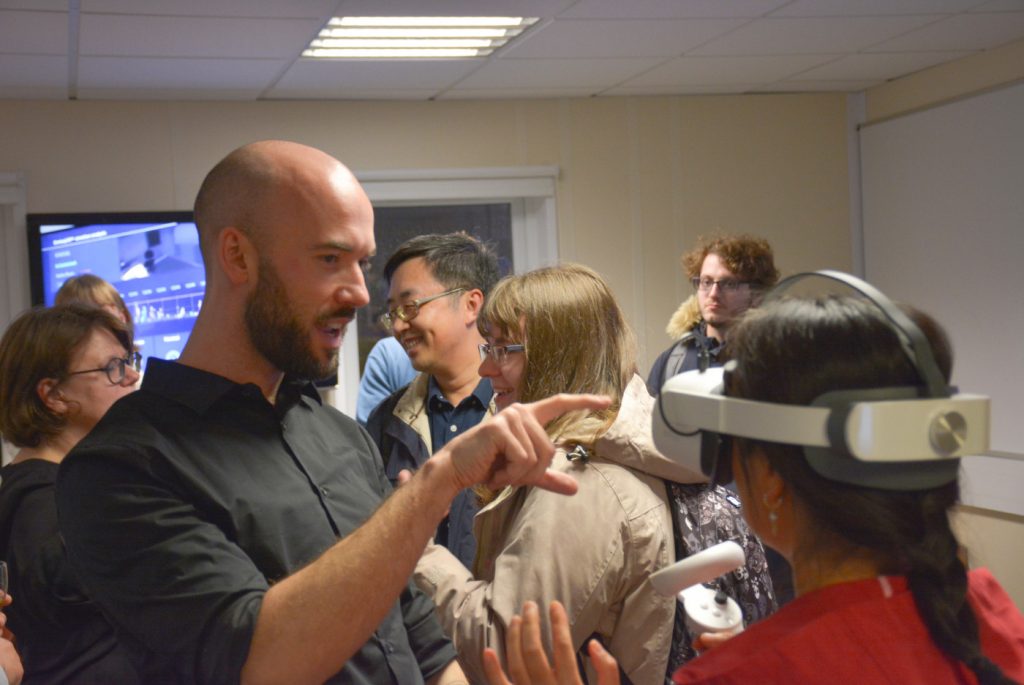
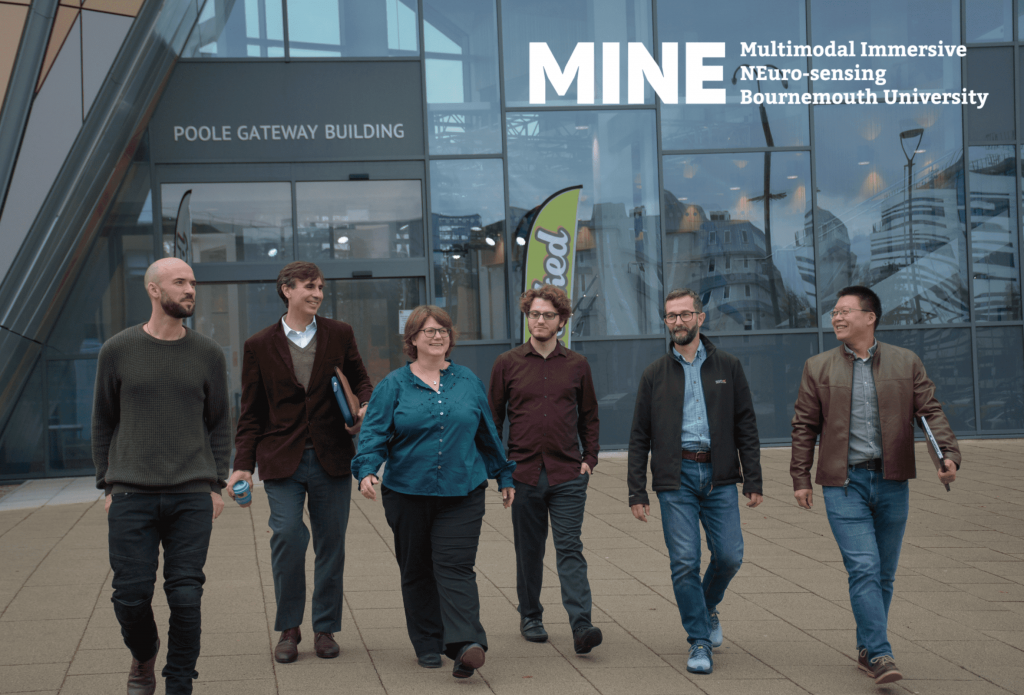


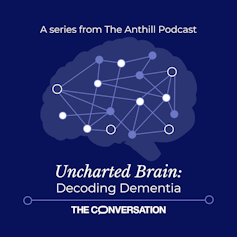

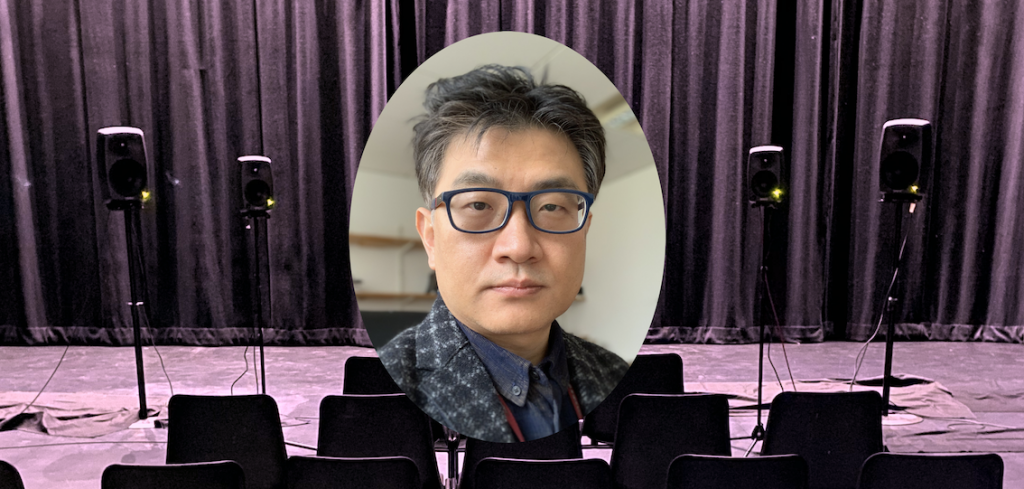
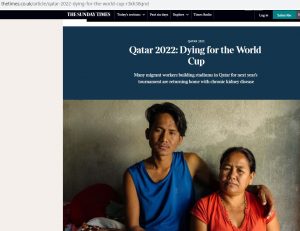

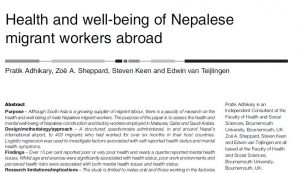

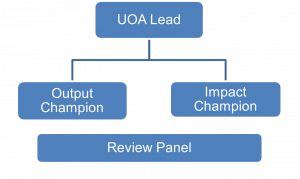











 Expand Your Impact: Collaboration and Networking Workshops for Researchers
Expand Your Impact: Collaboration and Networking Workshops for Researchers Visiting Prof. Sujan Marahatta presenting at BU
Visiting Prof. Sujan Marahatta presenting at BU 3C Event: Research Culture, Community & Can you Guess Who? Thursday 26 March 1-2pm
3C Event: Research Culture, Community & Can you Guess Who? Thursday 26 March 1-2pm UKCGE Recognised Research Supervision Programme: Deadline Approaching
UKCGE Recognised Research Supervision Programme: Deadline Approaching ECR Funding Open Call: Research Culture & Community Grant – Apply now
ECR Funding Open Call: Research Culture & Community Grant – Apply now ECR Funding Open Call: Research Culture & Community Grant – Application Deadline Friday 12 December
ECR Funding Open Call: Research Culture & Community Grant – Application Deadline Friday 12 December MSCA Postdoctoral Fellowships 2025 Call
MSCA Postdoctoral Fellowships 2025 Call ERC Advanced Grant 2025 Webinar
ERC Advanced Grant 2025 Webinar Update on UKRO services
Update on UKRO services European research project exploring use of ‘virtual twins’ to better manage metabolic associated fatty liver disease
European research project exploring use of ‘virtual twins’ to better manage metabolic associated fatty liver disease